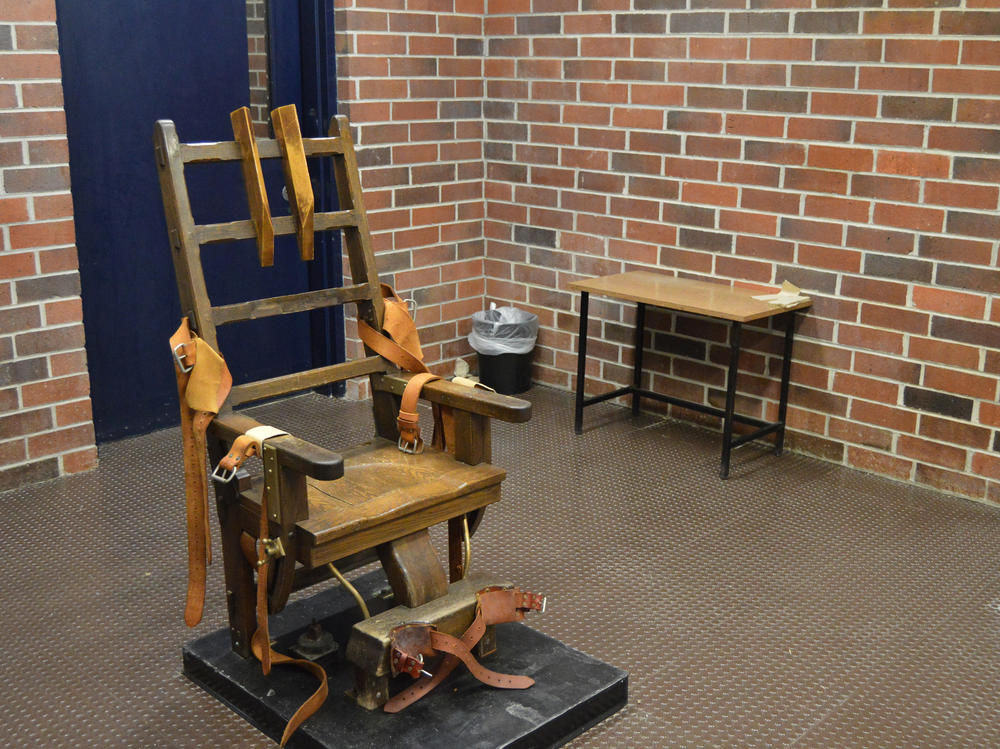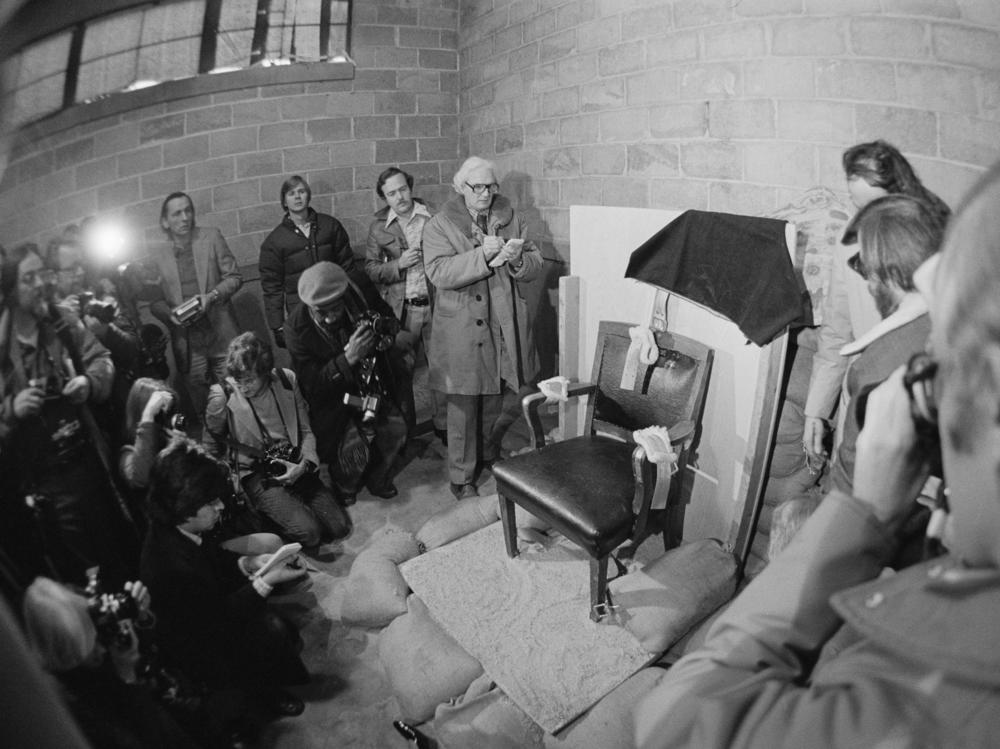Loading...
Section Branding
Header Content
With Lethal Injections Harder To Come By, Some States Are Turning To Firing Squads
Primary Content
South Carolina's Republican governor signed a bill into law last week that sounds like it's from a different century: Death row inmates must choose whether to be executed by the electric chair or a firing squad if lethal injection drugs are unavailable.
Lethal injection is the preferred method of execution in states that have the death penalty. But in recent years, they've had difficulty obtaining lethal injection drugs as pharmaceutical companies blocked their drugs from being used in executions.
In South Carolina, the state's supply of lethal injection drugs expired while death row inmates' cases went through appeals. Under the state's previous law, prisoners on death row could choose lethal injection or the electric chair. The inmates have chosen lethal injection and, as a result, have not been executed as the state has no more of the drugs needed.
South Carolina has not executed anyone in a decade.
When states can't get lethal drugs
Robert Dunham, executive director of the Death Penalty Information Center, says that states have reacted to their inability to get the drugs in various ways.
Some states, Dunham says, have tried to obtain the drugs either on the gray market or through subterfuge.
Some states have switched to drugs they can obtain through compounding pharmacies — though pharmacy associations have adopted resolutions urging their members not to facilitate in executions.
Many states have halted executions, whether by abolishing the death penalty or by simply not carrying out executions.
And a few states have turned to alternative methods of execution.
Alternative execution methods
Eight states allow electrocution: Alabama, Arkansas, Florida, Kentucky, Mississippi, Oklahoma and Tennessee as well as South Carolina. That's according to the Death Penalty Information Center, which tracks authorized methods in each state.
Lethal gas is permitted for executions in seven states: Alabama, Arizona, California, Mississippi, Missouri, Oklahoma and Wyoming. After some botched executions in gas chambers, Oklahoma, Mississippi and Alabama have authorized the method of nitrogen hypoxia.
"Rather than a chamber per se, where you drop a pill and the gas vaporizes and chokes the prisoner to death, this would be strapping a death mask on the prisoner and forcing them to inhale nitrogen gas," Dunham says. "But none of the states that have adopted this have yet to come up with a protocol for carrying it out. And Oklahoma, which was the first, has been unable to get anybody to sell them the gas."
New Hampshire permits hanging, which was once the primary method of execution in the United States. (The state has abolished the death penalty but not retroactively. One prisoner remains on death row there.)
And then there are firing squads. Utah took a similar tack to South Carolina in 2015, moving to allow the squads as a backup execution method. Firing squads are also permissible in Mississippi and Oklahoma. Utah has carried out all of the nation's three executions by firing squad since the 1970s, with the most recent in 2010.
In Utah, it happens this way: A squad of sharpshooters — volunteers solicited from corrections employees or law enforcement – carry out the execution.
"The prisoner is strapped into a chair, has a hood put over his or her face and a target placed on his or her chest above the heart. There are sandbags around the chair in case there are either stray bullets or ricochet. Done properly, the sharpshooters should be able to hit the target. And if there are five sharpshooters, four have live ammunition, one has a blank," Dunham says. "The idea is that that provides them with psychological deniability so that they don't have assurance that they actually killed somebody."
But that deniability may be imperfect, he says: "If you ask anyone who handles a rifle, they will tell you that when they fire it, they can tell the difference between live ammunition and a blank."
For federal executions, the current protocol is a lethal injection of compounded pentobarbital.
Executions depend on public support
Dunham says South Carolina's new law is not an isolated decision. As public support for capital punishment declines and more states abolish it, "there's a strong national trend away from the death penalty. But there is also pushback in the isolated jurisdictions that still want to kill prisoners."
Most executions happen in the Deep South or in a few specific counties elsewhere, such as Clark County, Nev. And Dunham says these outlier places are the same "jurisdictions that have racially discriminatory stop and frisk, tend to have harsher treatment of juvenile offenders, that tolerate police violence against civilians."
The American Civil Liberties Union of South Carolina called the state's execution legislation "modern-day lynching." It notes that Black people make up more than half of those on the state's death row despite being only 27% of its population.
"Let's not kid ourselves, this bill is about finding a new way to restart executions within a racist, arbitrary, and error-prone system. We cannot divorce the method of execution from the system itself. It is unconscionable that our lawmakers are trying to pretend otherwise," executive director Frank Knaack said in a statement.
Shocking as they are, archaic methods of execution can affect how the public regards capital punishment.
"There has been a sense in which lethal injection has provided a patina of civility," Dunham says. "It makes it appear less brutal. But the bottom line is the intentional killing of an individual against their will is an act of brutality. ... But that's what the death penalty is. And so it will force the American public to come to grips with whether this is something they can stomach."
Copyright 2021 NPR. To see more, visit https://www.npr.org.


